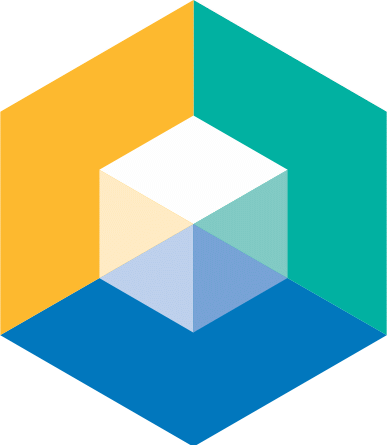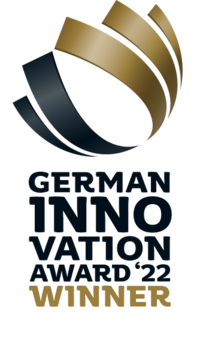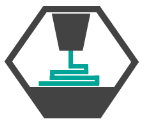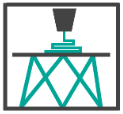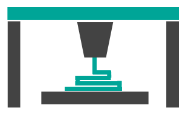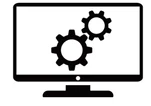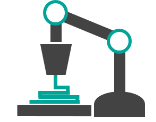1A Technologies
Industrial high-speed 3D printing with plastic granulate
Screw Extrusion Additive Manufacturing = SEAM
Why SEAM?
Handling and Speed
• High discharge performance up to 18 kg/h suitable for the efficient production of large-format, load-bearing structural components
• Easy handling (compared to powder)
• Continuous material supply (no spool exchange)
• True 5-axis 3D printing can be realized through special material forced feed into the screw for continuous conveyance process even for forced positions
• Almost all plastics can be processed without changing the screw and with highly wear-resistant components
*see diagram Build rate comparison
Material Costs and Availability
• More cost-effective than filament
• Wide range of series materials available (PA6GF/CF, PP GF, TPE, TPU) Standard up to 400°C
• Recyclate can be processed
• Regulated melt discharge -> significantly better layer adhesion and shorter dwell times in the screw for the processing of temperature-sensitive materials (e.g., natural fiber compounds) compared to the melt pump.
*see diagramm Cost Comparison
General
-> no additional expensive and heavy melt pump required
• Volume flow control between 0…100% (e.g., 0% for position jumps / 80% in corner areas to avoid contour overfill)
• Automated pressure regulation in the extruder to +- 1bar high consistent strand quality (independent of material batches) even with parameter drifts
• Damage-minimizing processing of fiber-reinforced plastics through gentle material discharge.
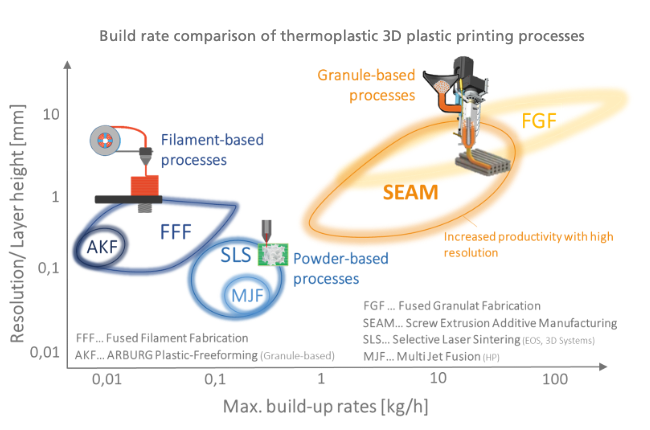
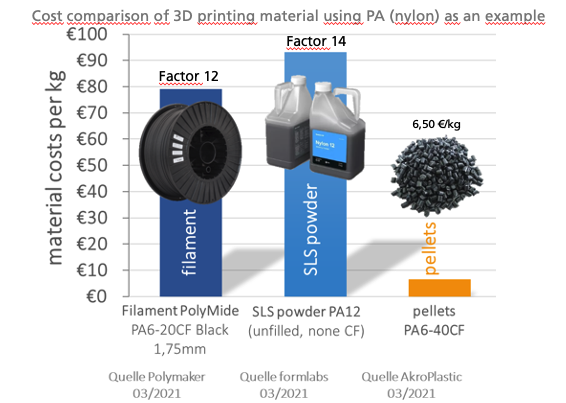
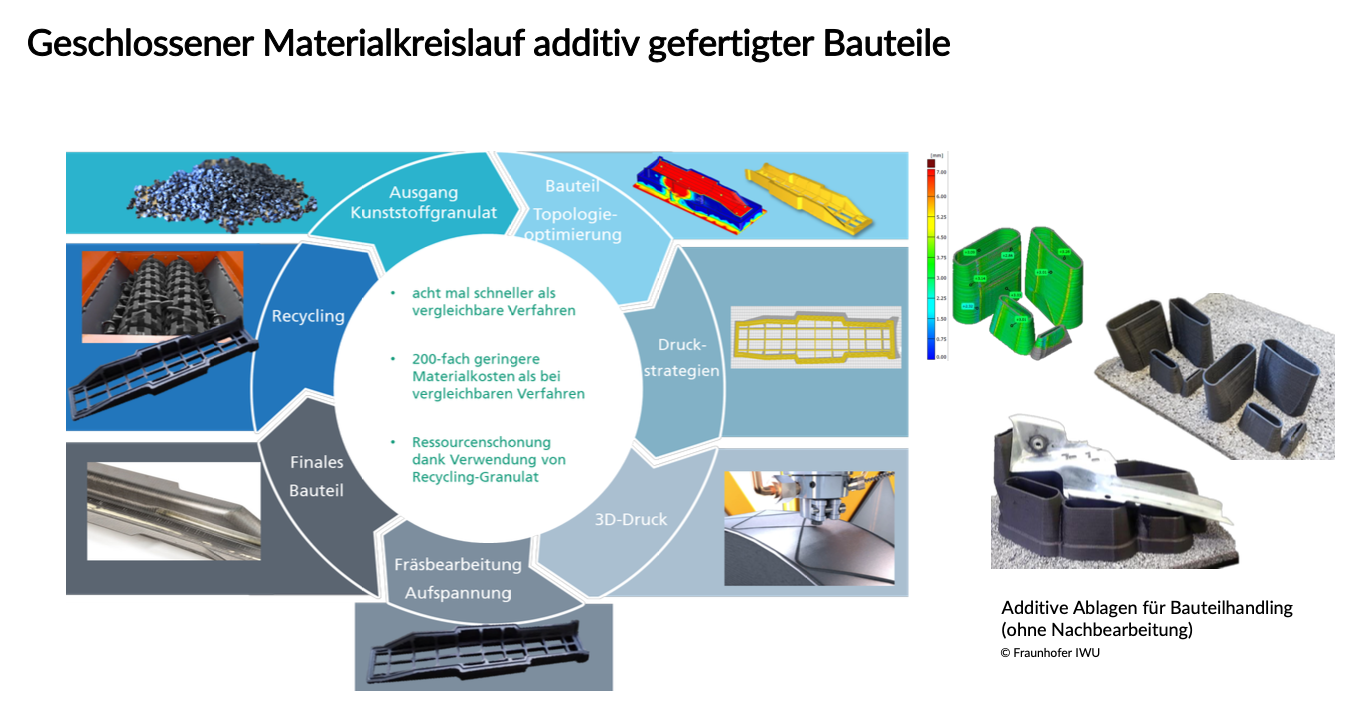
Screw Extrusion Additive Manufacturing – Implementation
Penta SEAM - High-Speed 3D Printer + Milling
The extrusion unit is integrated in the 5-axis machines from Metrom. There, the machine is used for hybrid machining, i.e. additive and subtractive processing in one machine.
SEAM Hex - High-Speed 3D Printer + Milling
The extrusion unit is available in combination with a hexapod table as a pure 3D printer. The incredible performance of the parallel kinematic table allows industrial parts to be produced in a very short time without support structures.
EPIC3D
The high output rate of the extruder enables integration in a gantry machine for the production of large components.
HY5CAM - CAD-CAM software system
CAD-CAM software system programming environment for additive + subtractive processes based on RhinoCAD and moduleworks machining plugin.
Robo SEAM - Individual in production technology and process combination
The extrusion unit is integrated in the 5-axis machines from Metrom. There, the machine is used for hybrid machining, i.e. additive and subtractive processing in one machine.
![2023-05-04_20-32-09[755]](https://1a-technologies.com/wp-content/uploads/2023/05/2023-05-04_20-32-09755.png)
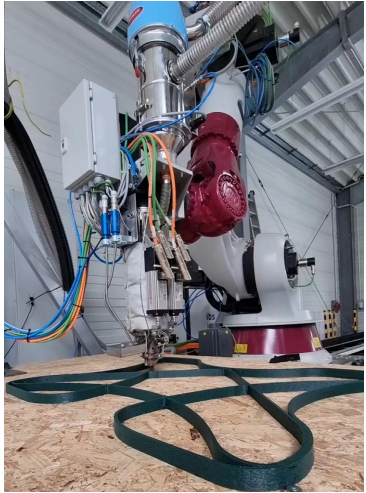
SEAM variants and upgrade options
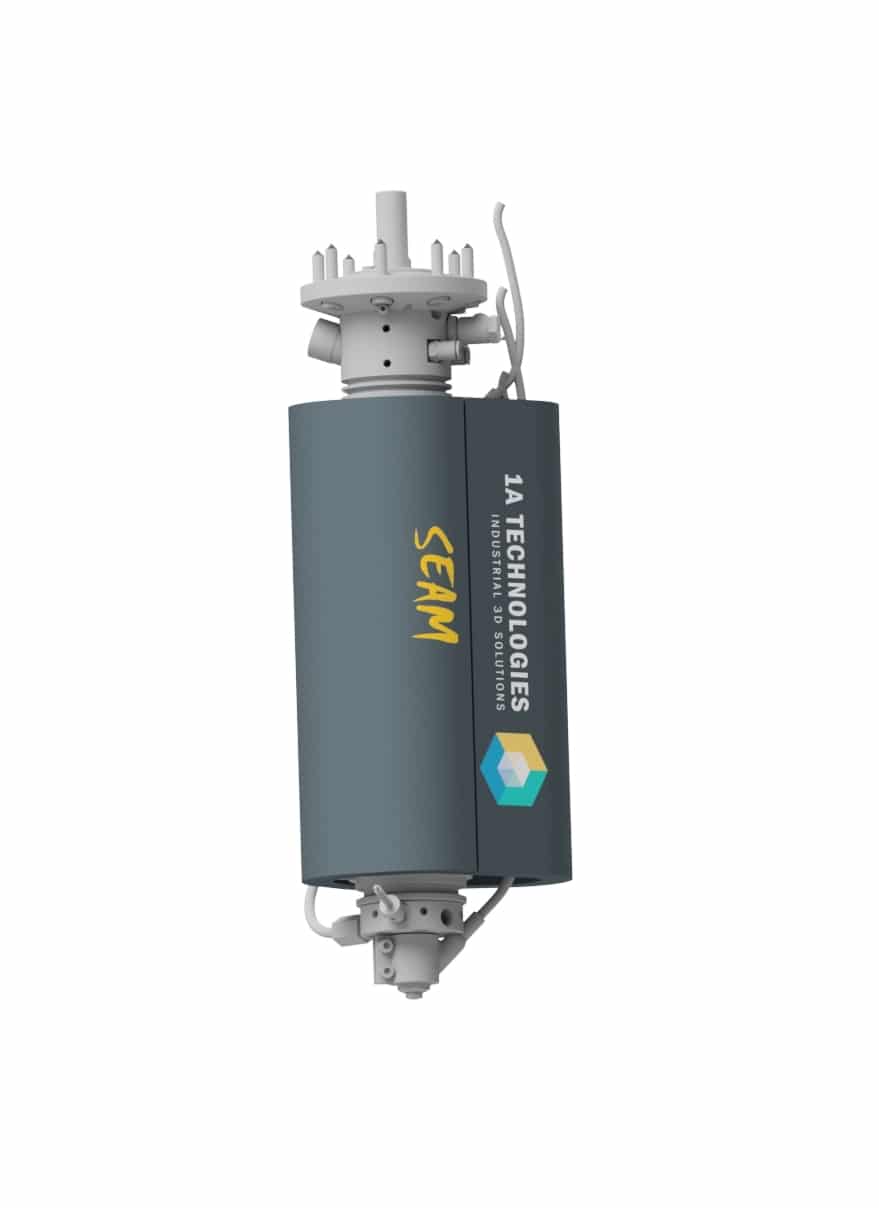
SEAM light
- Minimal interface to kinematics
- Includes extruder with 4 heating zones, 1 pressure sensor, and gear motor (On-OFF, speed)
- HMI for controlling all functions.
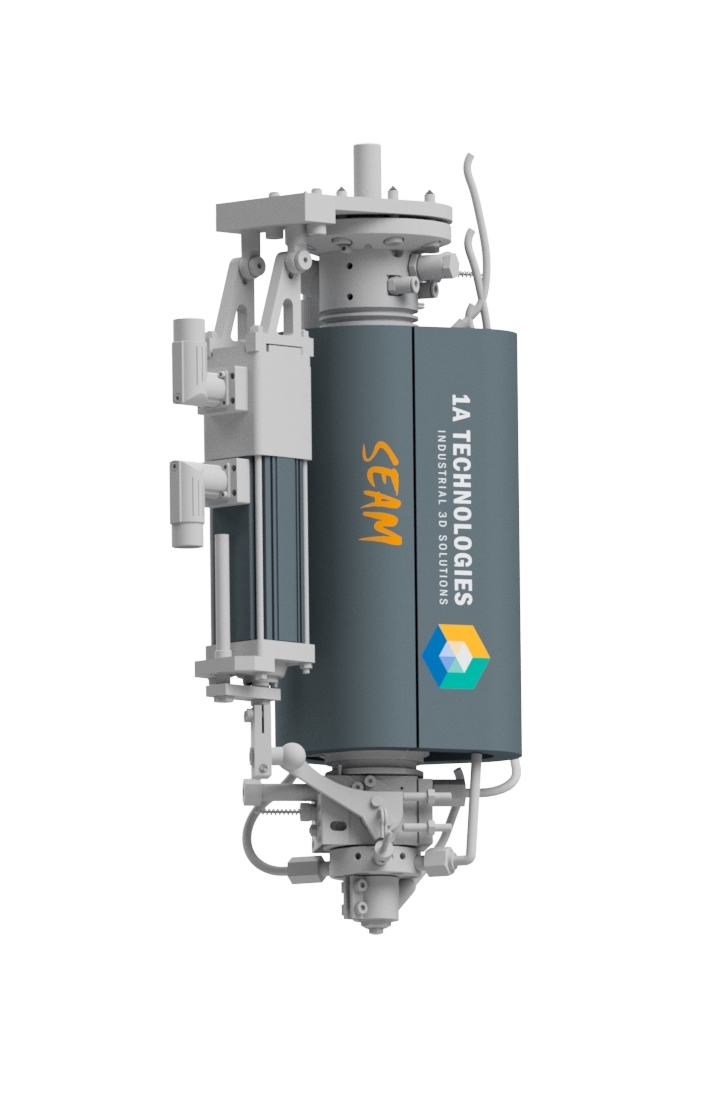
SEAM 1K
- Minimal interface to kinematics OR adaptive process control with LookAhead
- Includes extruder with 5 heating zones, 2 pressure sensors + gear motor (constant speed)
- Combined pressure and discharge control via patented 1K bypass system.
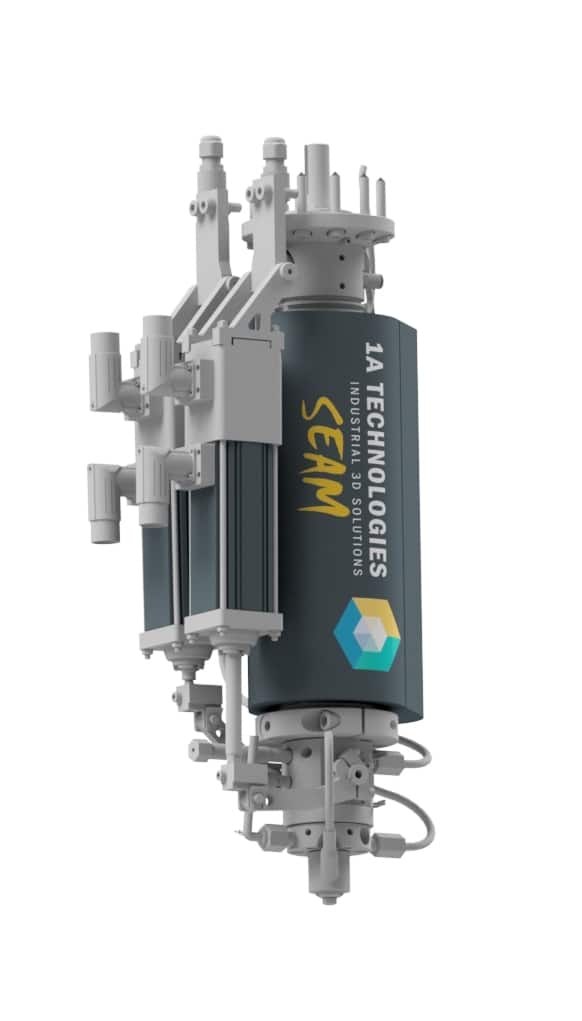
SEAM 2K
- Adaptive process control with LookAhead Feedforward control
- Includes extruder with 5 heating zones, 2 pressure sensors + gear motor (constant speed)
- Pressure and discharge control via patented 2K bypass system for rapid process control.
What Can We Do For You?
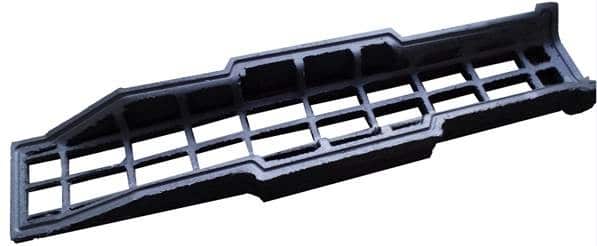
Application scenario: Vacuum clamping device
• Manufacturing of the individual component with a surcharge of 4mm
• Final machining with final dimension tolerance
• Plastic instead of aluminum for lighter, more cost-effective components
• Simple and tool-less machining through material substitution.
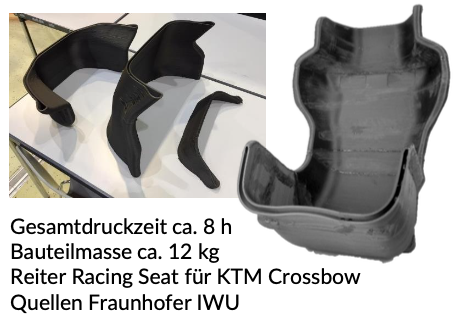
Application scenario: Production of laminating devices (with internal honeycomb structure)
• Recreational vehicle bodies
• Special vehicle bodies
• Boat and yacht construction
• Floor plates
• Facade claddings
• and more…
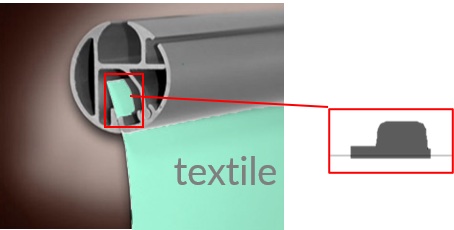
Application scenario: Direct printing of TPU/TPE onto fixtures or textile
- printing on textile structures applications
- piping for covering and fixing of textiles, possibility of easy disassembly and replacement of the textile
- Local reinforcement, directional reinforcement
- Functionalization -> Anti-slip
- edge reinforcement, prevention of textile unraveling
- Cutting aid
- Flexible application of 3D structures
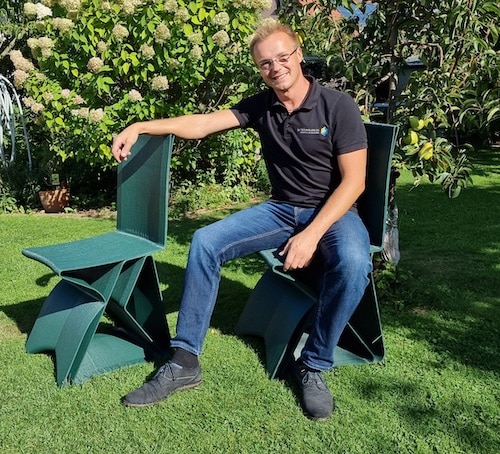
Application scenario: Furniture pieces
• Control panel with integration for 19″ rack PC
• Bar stools
• Conference tables and chairs
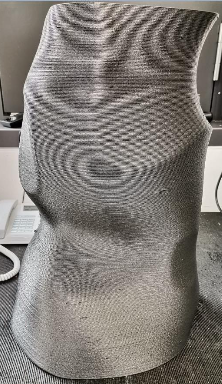
Application scenario: Orthopedic components
Current project Fraunhofer IWU AM-Ortho
• Process chain from scanning to direct printing can be represented
• Saving the plaster blank as an intermediate step
• Saving manual orthosis production by two people with warm film and hot air hairdryer
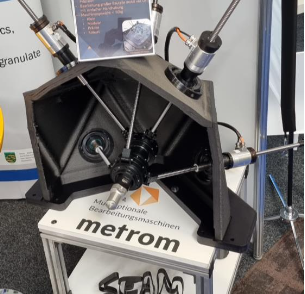
Application scenario: Structural components machine frame
• Production time 1 week instead of 3.5 weeks steel frame
• Weight saving of 50% compared to the original
• Expansion of the machine’s working area by 80%
• Manufacturing costs 50%


